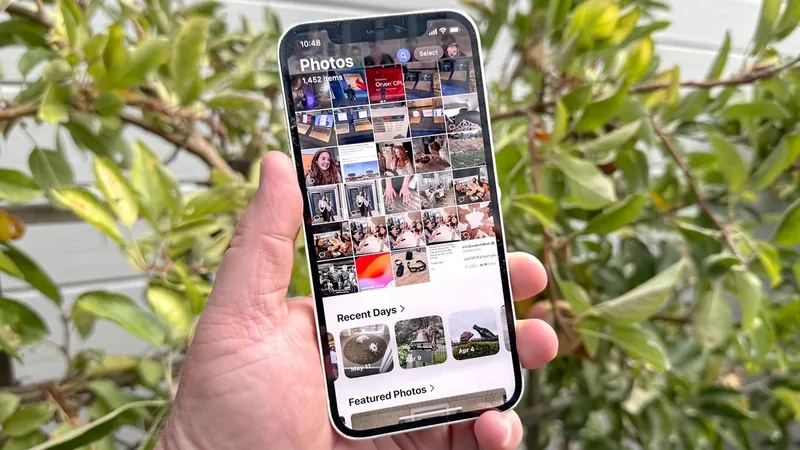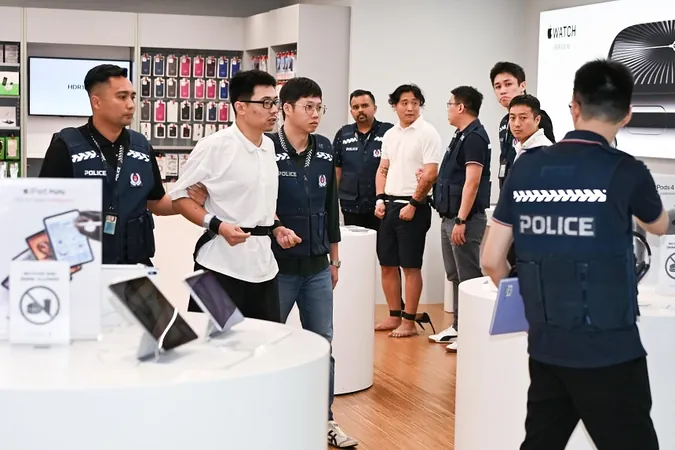
Exciting Breakthrough in Gene Therapy: AAVantgarde Doses First Patient in Revolutionary Trial for Usher Syndrome Type 1B
2024-09-16
Author: Siti
MILAN, Italy – September 16, 2024
In a groundbreaking development, AAVantgarde Bio, a prominent biotechnology company based in Italy, has announced that the first patient has been dosed in the LUCE-1 clinical trial. This Phase 1/2 open-label study aims to evaluate the safety and tolerability of AAVB-081, a dual-AAV gene therapy targeting retinitis pigmentosa associated with Usher Syndrome Type 1B (USH1B).
Innovative Technology
The uniqueness of AAVB-081 lies in its dual hybrid gene therapy platform, which is designed to deliver the MYO7A protein. This technology stems from research conducted by Professor Alberto Auricchio at the Telethon Institute of Genetics and Medicine (TIGEM) in Naples. AAVantgarde, a spin-off from TIGEM, holds exclusive rights for using this innovative dual-AAV technology to address inherited retinal diseases.
First Patient Dosed
The administration of the first subretinal gene therapy in this study was overseen by Professor Francesca Simonelli, Head of the Ophthalmology Unit at University Hospital of Campania "Luigi Vanvitelli" in Naples, which is one of the three sites involved in the trial. As the global Chief Investigator, Dr. Simonelli expressed her enthusiasm: “I am delighted to be involved as Principal Investigator in this first-in-human clinical study. We aim to revolutionize our approach to understanding and treating these underserved patients.”
The Significance of the Trial
The excitement around this trial extends beyond its immediate implications, as experts believe it could pave the way for new treatments in the realm of ophthalmology. Dr. Jayashree Sahni, the Chief Medical Officer at AAVantgarde, emphasized the significance of collaboration with leading researchers like Professor Simonelli to expedite the development of this novel therapy for the USH1B patient community.
About Usher Syndrome Type 1B
Usher Syndrome Type 1B is a serious hereditary condition that leads to combined vision and hearing loss, affecting approximately 20,000 patients in the U.S. and Europe. The genetic mutations responsible for this syndrome significantly hinder the treatment options currently available to these individuals, especially for progressive vision loss, creating a critical need for effective therapies.
AAVB-081: A Novel Solution
AAVB-081 distinguishes itself as an AAV8-based dual hybrid product designed to target MYO7A, providing a means to deliver the necessary protein that individuals with USH1B can’t produce due to their genetic mutation. The dual-AAV technology combines two vectors to effectively deliver the large MYO7A gene, a significant advancement in the fight against this debilitating condition.
Trial Overview
The LUCE-1 trial represents a multi-center, open-label study involving dose escalation to assess safety, tolerability, and preliminary efficacy of AAVB-081. Given the profound implications of such research, AAVantgarde Bio aims to bring hope to thousands of patients who currently have no viable treatment options to prevent further sight loss.
Looking Ahead
As AAVantgarde progresses through this clinical journey, the scientific community and patients alike are waiting with bated breath to see if this innovative approach can truly transform the landscape of treatment for Usher Syndrome Type 1B.
For More Information
For more details on AAVantgarde Bio and its pioneering work, visit their website: www.aavantgarde.com.



 Brasil (PT)
Brasil (PT)
 Canada (EN)
Canada (EN)
 Chile (ES)
Chile (ES)
 España (ES)
España (ES)
 France (FR)
France (FR)
 Hong Kong (EN)
Hong Kong (EN)
 Italia (IT)
Italia (IT)
 日本 (JA)
日本 (JA)
 Magyarország (HU)
Magyarország (HU)
 Norge (NO)
Norge (NO)
 Polska (PL)
Polska (PL)
 Schweiz (DE)
Schweiz (DE)
 Singapore (EN)
Singapore (EN)
 Sverige (SV)
Sverige (SV)
 Suomi (FI)
Suomi (FI)
 Türkiye (TR)
Türkiye (TR)